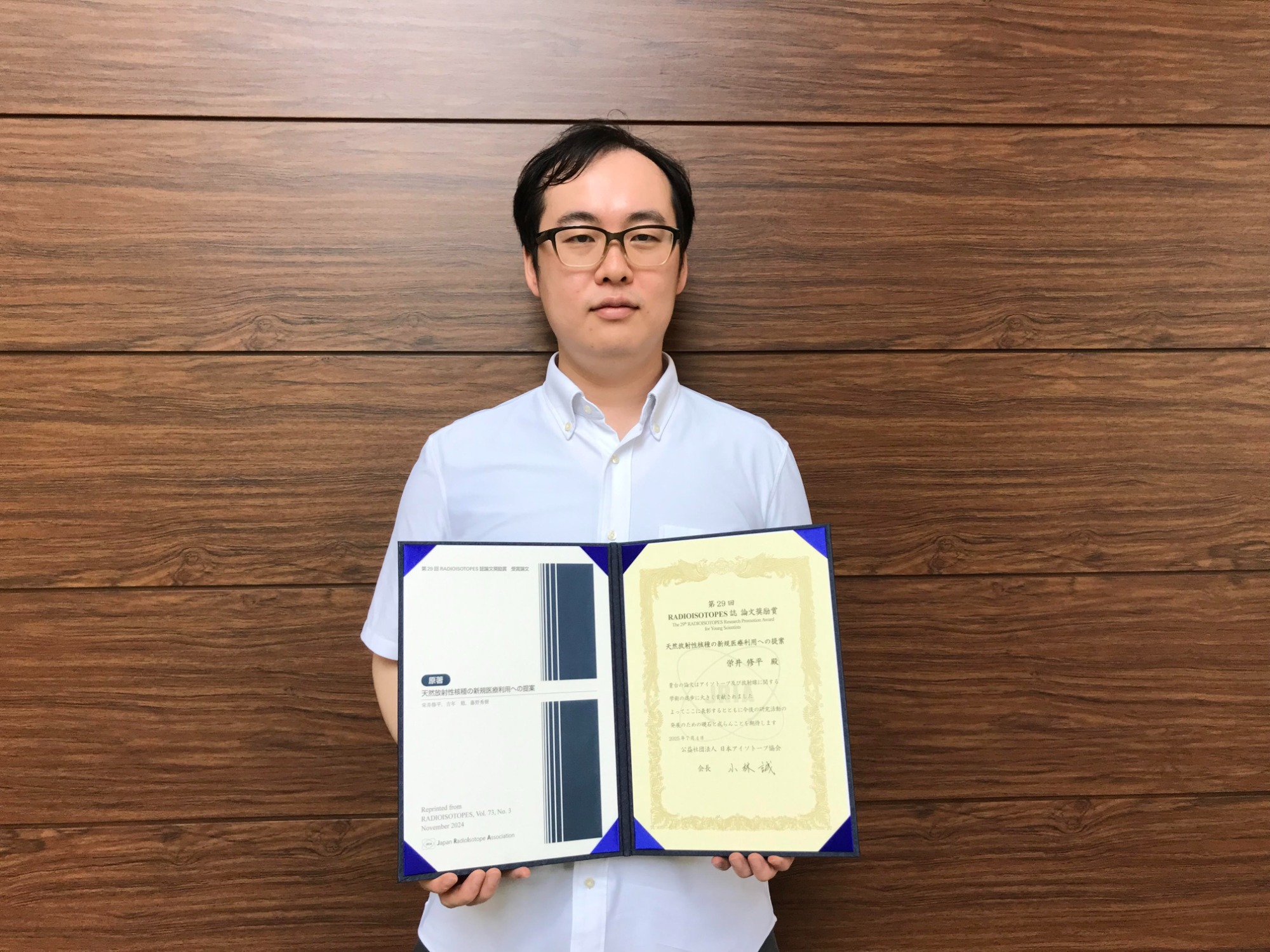Awards
Winner of the 29th RADIOISOTOPES Encouragement Award (Assistant Professor Shuhei Sakai, Faculty of Pharmaceutical Sciences)
Assistant Professor Shuhei Sakai of the Pharmaceutical Health Sciences has been awarded the 29th RADIOISOTOPES "Paper Encouragement Award," which aims to support the research activities of young researchers related to isotopes and radiation. Assistant Professor Sakai's research was recognized as a pioneering effort that paves the way for the effective use of natural radioactive nuclides, and he was honored at the 61st Isotope and Radiation Research Presentation Conference, held at the National Museum of Emerging Science and Innovation (Miraikan) in Tokyo from July 3rd to 5th.

Awarding Organization
Japan Radioisotope Association 29th RADIOISOTOPES Journal "Paper Encouragement Award"
Award title
Proposals for new medical uses of natural radionuclides
Research Overview and Background
This paper systematically examines the possibility of new medical applications using natural radionuclides. We established a method for quantifying bone density in freeze-dried rat bone sections using a rubidium-87 surface source, and further proposed a method for quantifying potassium ion concentrations in infusion fluids using potassium-40. These results are expected to be used as a new method for quantifying potassium concentrations in infusion fluids, with the aim of preventing medical accidents.
Key points of the research
We investigated new medical uses for natural radionuclides contained in reagents that do not require radiation control, and established a method for quantifying bone density in rat sections using rubidium-87, which has moderate beta-ray energy, as a surface radiation source. Furthermore, we focused on potassium-40, which has strong beta-ray energy, and developed a new method for quantifying potassium ion concentrations in infusion fluids. These quantitative methods are expected to make a significant contribution to the medical field, and have been recognized as pioneering efforts that pave the way for the effective use of natural radionuclides.
Research Methods and Results
Because a sudden rise in serum potassium concentration can cause serious disorders, standard concentrations have been set for infusions. However, medical accidents involving potassium preparations are on the rise, and quantifying potassium concentrations is thought to be useful in preventing such accidents. Therefore, we focused on potassium-40 contained in infusions and proposed a new quantitative method that incorporates radiation measurement. In addition, we focused on the shielding properties of rubidium-87 and developed a new bone mineral density quantification method that can be used in non-clinical trials of osteoporosis models. These research results are expected to contribute to improving the safety of drug treatment with potassium preparations and to evaluating the efficacy of osteoporosis treatment drugs.
Source of research funds etc.
JSPS Scientific Research Grant (JP24K20186)